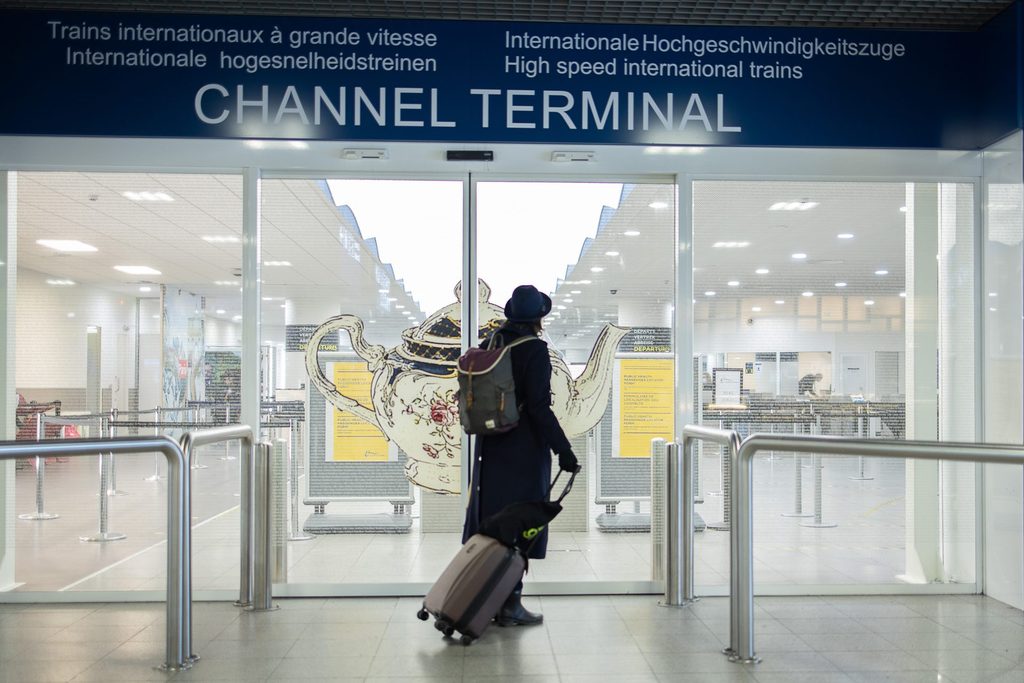The much-delayed post-Brexit EU Entry/Exit System (EES) is expected to come into force by the end of 2024 and greatly affect Eurostar trains to Brussels, as the facilities at London St Pancras have been deemed "inadequate" to process these new checks.
The EES is an automated IT system for registering travellers from third countries who travel to the European Union. Since 1 February 2020, UK nationals are considered 'third-country nationals' under EU law. Every time short-stay visa holders and visa-exempt travellers go into the EU, they will also have to submit fingerprint and facial biometric data. The system also records refusals of entry.
The introduction of EES was initially scheduled for 2022 but was pushed back twice to the end of 2023. EES is now scheduled to be introduced in late 2024 following a request from France that its implementation be delayed until after the Paris Olympics this summer.
The EU has hailed the EES as an efficient replacement for the current system of manual stamping of passports, which is time-consuming, does not provide reliable data on border crossings and does not allow a systematic detection of travellers who have exceeded the maximum duration of their authorised stay.
However, Eurostar, which runs trains between London and several EU capitals including Brussels, has said the new system has been designed for airports rather than for terminals located in city centres or subject to space constraints, and that its implementation will represent "a unique challenge".
Hour-long queues
High Speed 1 (HS1) is the owner and operator of the line between London and the Channel tunnel, owning all of the stations too. Recently, it has raised several concerns to British MPs that the planning for the new checks at London St Pancras, where the notoriously small space for international rail travel already leads to long queues, were "severely inadequate".
It said only 24 EES kiosks had been allocated by the French government, despite modelling suggesting that nearly 50 would be needed, meaning Eurostar would be unable to process all passengers, particularly at the morning peak. The lack of kiosks could result in hour-long queues at peak times, and possibly leading to a capping of services and passenger numbers, the owner of London St Pancras station told The Guardian.
Any extra kiosks would need to be funded by Eurostar, at about £25,000 (almost €30,000) per kiosk, while the operation and maintenance costs for all of the kiosks each year would be £2 million (€2.34 million).

Queues at the control to enter the Eurostar departure hall. Credit: Belga / Nicolas Maeterlinck
Eurostar, meanwhile, argued that the new system would add "two to three minutes" to the current time taken to process travellers going through, which is currently around 45 seconds. This is significantly higher, the railways operators say, and could lead to queues of over an hour. The complication of the flow management would also represent a "higher risk for the delivery of the timetable".
HS1 is calling for the system to be phased in gradually to avoid "serious disruption". Eurostar CEO Gwendoline Cazenave meanwhile hopes the authorities will allow most of the process to be done in advance online, rather than under the supervision of border police. The company also called for an "emergency brake mechanism" that could be triggered by politicians if the EES led to permanently longer queues.
Last January, Eurostar was already forced to cap passenger numbers for several months due to border police being unable to process passports quickly enough.
Port concerns
The concerns over delays at London St Pancras mirror those of port operators and local authorities. Ashford borough council, responsible for the area around the Port of Dover, told the EES committee that 14-hour queues were "a reasonable worst-case" scenario if the scheme was implemented as planned.
Kent Council leader Roger Gough raised the possibility that the wait could climb to 14 hours. "If there are aggravating circumstances, bad weather or whatever, the situation could be even worse." He described how congestion usually starts in Dover and spreads across the county very quickly.
The Port of Dover and the surrounding area have experienced several episodes of blockages in recent years, with controls linked to the UK's exit from the EU (Brexit) further lengthening waiting times.

